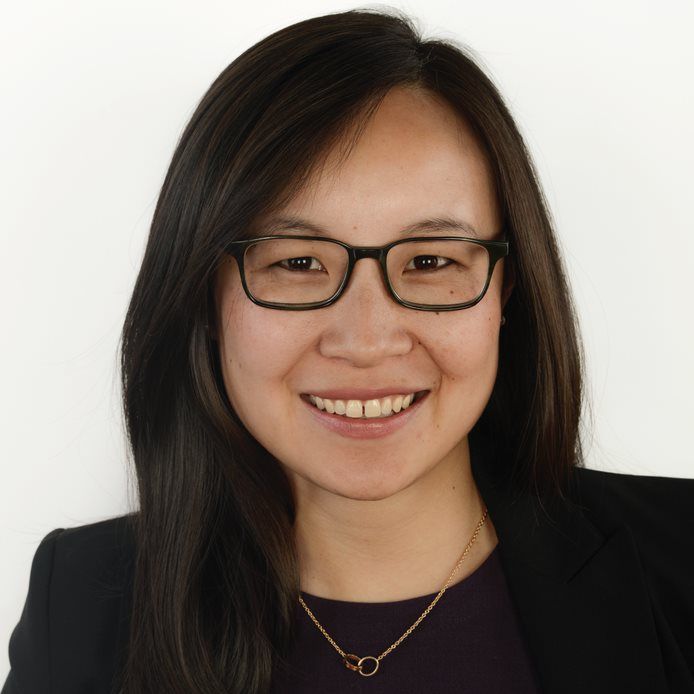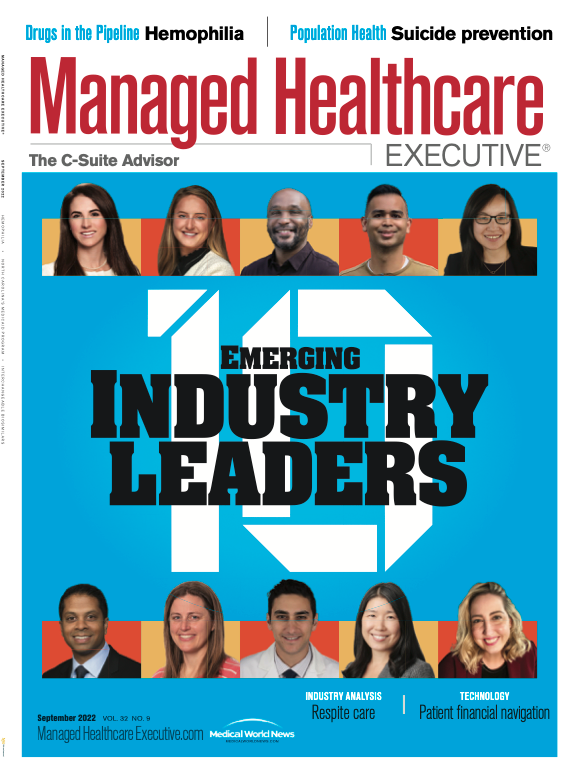- Hypertrophic Cardiomyopathy (HCM)
- Vaccines: 2023 Year in Review
- Eyecare
- Urothelial Carcinoma
- Women's Health
- Hemophilia
- Heart Failure
- Vaccines
- Neonatal Care
- NSCLC
- Type II Inflammation
- Substance Use Disorder
- Gene Therapy
- Lung Cancer
- Spinal Muscular Atrophy
- HIV
- Post-Acute Care
- Liver Disease
- Pulmonary Arterial Hypertension
- Biologics
- Asthma
- Atrial Fibrillation
- Type I Diabetes
- RSV
- COVID-19
- Cardiovascular Diseases
- Breast Cancer
- Prescription Digital Therapeutics
- Reproductive Health
- The Improving Patient Access Podcast
- Blood Cancer
- Ulcerative Colitis
- Respiratory Conditions
- Multiple Sclerosis
- Digital Health
- Population Health
- Sleep Disorders
- Biosimilars
- Plaque Psoriasis
- Leukemia and Lymphoma
- Oncology
- Pediatrics
- Urology
- Obstetrics-Gynecology & Women's Health
- Opioids
- Solid Tumors
- Autoimmune Diseases
- Dermatology
- Diabetes
- Mental Health
Emerging Industry Leaders: Lissy Hu of WellSky
Lissy Hu, M.D., MBA, president of Connected Networks at WellSky, a care coordination network headquartered in Boston, is one of the 10 up-and-coming healthcare leaders featured in the annual Managed Healthcare Executive feature.
Lissy Hu, M.D., MBA
I immigrated to the United States from China with my parents at age 5. Inspired by my father’s love of science and my mother’s career as a nurse and home health aide, I decided to pursue medicine. I received my B.A. in premedical studies and sociology from Columbia University. I went on to simultaneously earn an MBA from Harvard Business School and an M.D. from Harvard Medical School.
Hu

My biggest leadership high point of my career has been seeing CarePort grow. I always knew the platform filled a market gap but never could have imagined that the company would become so trusted by key medical stakeholders, resulting in two successful acquisitions — most recently, by WellSky in December 2020. Growing CarePort and ensuring that all employees had a home in this next stage of the company’s life have been one of my greatest professional accomplishments to date.
Why did you decide to pursue a career in healthcare?
While I was a student at Harvard Medical School and Harvard Business School, I noticed an immediate, unsolved need in healthcare — improving patient outcomes by streamlining patient care transitions from acute to post-acute care.
The company was founded when I submitted a winning business plan for this idea in the 2012 Harvard Business School Business Plan Competition in the Social Enterprise Track, which provided me with the funding needed to get CarePort off the ground.
Now CarePort connects more than 1,000 hospitals with more than 130,000 post-acute providers to deliver real-time data and actionable insights to ensure that patients receive the best care possible as they navigate the continuum of care.
Which career accomplishment are you proudest of and why?
CarePort is my proudest career accomplishment because I built the company with a team. It’s always better to achieve something with others, and building a company is truly a team sport. It’s been immensely gratifying to see my vision get better over time as people from all walks of life contribute to it in the service of our health system and patients.
What is the most challenging part of your current position?
As the company grows, the challenges it faces constantly change. I am always trying to balance tackling today’s problems with looking around the corner and preparing for what is to come.
What is your organization doing to address healthcare equity?
As a medically trained doctor, I know it is critical to address patients’ social determinants of health (SDOH), including an individual’s access to nutritious food, transportation, safe housing and social connections, to achieve true wellness. As healthcare delivery shifts toward home-based care, CarePort offers access to a broader network of post-acute providers, including home health and community-based organizations that address patients’ SDOH needs. It also enables providers to better engage patients in making informed decisions about their care.
If you could change one thing in U.S. healthcare, what would it be?
I would change the U.S. healthcare system so that providers, payers and patients are better connected. Technology is helping us better connect the dots, but many silos persist in the system today. In order to improve connections and eliminate these silos, all the critical stakeholders involved in a patient’s care should be able to identify, track and manage patients throughout the continuum of care because of failures in care coordination — technology that enables this will not only improve healthcare costs, but also lead to greater patient outcomes.
How do you avoid burnout?
Staying close to CarePort’s mission helps me avoid burnout. I reflect on what I am doing on a regular basis to ensure that I am focused on actions that move the needle forward for the company and focus on tasks that make a difference.

DC Roundtable: Patrick Cooney of The Federal Group Drops the Latest on PBM Legislation in Washington
April 11th 2024In this episode of "DC Roundtable," Peter Wehrwein, managing editor of Managed Healthcare Executive, spoke with Patrick Cooney, president of The Federal Group, a lobbying and strategic planning firm in Washington, D.C., about recent developments in Washington concerning PBMs.
Listen
2024 Emerging Leaders in Healthcare — Submit For a Chance to Be Featured in MHE's August Issue
April 22nd 2024MHE Editors are seeking diverse healthcare professionals from different backgrounds and healthcare sectors, with individual interests. Eligible candidates are early or mid-career leaders with less than 10 years of experience. Award winners will enjoy complimentary passes to the PBMI Annual National Meeting in Orlando, Florida, from Sept. 4-6. Additional perks include a feature in our August issue, a subscription to MHE and more!
Read More
